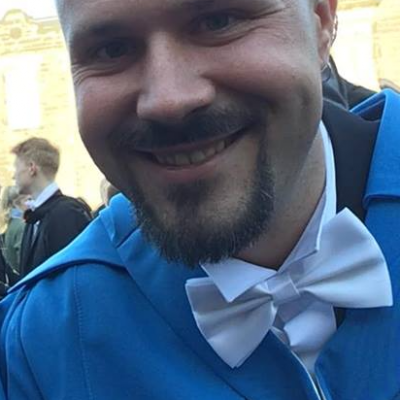This workshop will explore potential uses of Twine, an open-source platform for creating non-linear stories, in the foreign language classroom. Non-linear storytelling and interactive fiction can help teachers to create a playful and immersive learning environment, which allows learners to gain the same benefits as reading traditional narratives, but with added agency over the direction of the story and interaction with the narrative. These additional elements have been shown to increase the motivation of students to read, and can be used to facilitate discussion, critical thinking, and decision making that is not easily accommodated through the passive reading of traditional narratives. Learning how to create non-linear stories with a platform such as Twine can therefore provide educationalists with a new, easy to use, and effective tool to create immersive exercises for their classes.
Participants in this workshop will gain a basic knowledge of Twine, its limitations, the possibilities it offers, and some of its potential uses in the classroom. They will be guided through the basics of creating non-stories with Twine and will start to create their own simple non-linear story using the platform. Following completion of the workshop participants will have acquired the skills to begin developing new resources for their own classes with Twine and the knowledge to guide students through the use of the platform.
Participants do not require a knowledge of Twine or its markup language (Harlowe) since the workshop is aimed at those with little to no knowledge of the platform and limited knowledge of digital methodologies and paedologies more generally. Those wishing to attend will need access to a computer during the workshop and should have either downloaded Twine beforehand (https://twinery.org/) or be able to access the online version during the workshop.
-

I am an assistant professor at Waseda University who specialises in history and religious studies. I worked in EFL at various levels for several years and am interested in the use of digital technology in research and the classroom. I am former Editor-in-Chief of the digital humanities periodical, The Digital Orientalist (https://digitalorientalist.com/).
Speaker
My name is James Morris. I am an assistant professor at Waseda University specializing in Japanese history and religious studies. I have worked in EFL for several years and am interested in the use of digital technology in research and within the classroom. I am former Editor-in-Chief of the digital humanities periodical, The Digital Orientalist.
Resources for Twine
Participants in this workshop will learn about interactive narratives and how to create them using Twine. The workshop focuses on the basics, but for those wishing to continue building their skills after the workshop it is important to find resources and materials to learn from. Below you will find a list of some of my favourites!
- Twine Cookbook - Twine's own guide.
- Harlowe Manual - a guide to use Harlowe (the markup language used in Twine).
- Adam Hammond's Twine Guide - a simple guide by Adam Hammond which is particularly good for those wanting to beautify their stories.
- Online Tools for Teaching and Learning - some ideas for using Twine in class.
- Digital Exposure TV's Twine Tutorial
- Dan Cox's Learning Twine
- Vegetarian Zombie's Introduction to Twine
My Use of Twine
For those who want to learn more about my own use of Twine beyond that which I shared in the workshop, I wrote this short article just after I began using the platform several years ago.